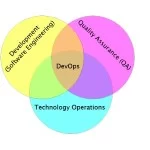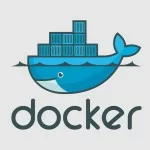Docker and Docker compose
Docker and Docker Compose are powerful tools used in modern software development and deployment workflows. Docker enables developers to package applications and their dependencies into lightweight containers, while Docker Compose simplifies the management of multi-container applications.
1. Understanding Docker
Docker is a platform that allows developers to build, ship, and run applications in isolated environments called containers. Containers are self-contained units that include all the necessary libraries, dependencies, and configuration files required to run an application. Docker uses containerization technology to ensure consistency and reproducibility across different environments, making it easier to develop and deploy software.
1.1 Key Concepts
Some key concepts in Docker include:
- Images: Docker images are read-only templates that contain the application code, runtime, libraries, and dependencies.
- Containers: Docker containers are lightweight, portable, and executable units that run the application based on the Docker image.
- Dockerfile: A Dockerfile is a text file that contains instructions for building Docker images.
- Registry: Docker Hub is a public registry that hosts Docker images, allowing users to share and distribute their images.
1.2 Benefits of Docker
Docker offers several benefits for developers, including:
- Consistency: Docker ensures consistent environments across development, testing, and production.
- Isolation: Containers provide isolation for applications, preventing conflicts between dependencies.
- Portability: Docker containers can run on any platform that supports Docker, making it easy to migrate and deploy applications.
- Scalability: Docker’s lightweight nature enables efficient resource utilization and scaling of applications.
1.3 Use Cases
Docker is widely used in various scenarios, including:
- Microservices Architecture: Docker simplifies the deployment and management of microservices-based applications.
- Continuous Integration/Continuous Deployment (CI/CD): Docker facilitates the automation of build, test, and deployment pipelines.
- Development Environments: Docker provides consistent development environments for developers working on different platforms.
- Hybrid Cloud: Docker enables seamless deployment of applications across hybrid and multi-cloud environments.
2. Understanding Docker Compose
Docker Compose is a tool for defining and running multi-container Docker applications. It uses a YAML file to configure the application’s services, networks, and volumes, allowing developers to define complex application stacks with ease. Docker Compose simplifies the orchestration of containers and enables developers to spin up entire development environments with a single command.
2.1 Key Features
Some key features of Docker Compose include:
- Service Definition: Docker Compose allows developers to define services, networks, and volumes in a single YAML file.
- Container Orchestration: Compose manages the lifecycle of containers, including creation, startup, shutdown, and removal.
- Environment Variables: Compose supports environment variables for parameterizing configurations and passing runtime values to containers.
- Dependency Management: Compose can define dependencies between services and ensure they are started in the correct order.
2.2 Benefits of Docker Compose
Docker Compose offers several benefits for developers and DevOps teams, including:
- Simplified Development Workflow: Compose streamlines the setup and teardown of multi-container applications, improving developer productivity.
- Infrastructure as Code (IaC): Compose allows infrastructure configurations to be defined as code, making it easier to version control and reproduce environments.
- Resource Optimization: Compose enables efficient resource utilization by managing container resources based on defined specifications.
- Scalability: Compose can scale application services horizontally or vertically based on demand, ensuring optimal performance.
2.3 Best Practices
Some best practices for using Docker and Docker Compose include:
- Use Single Responsibility Principle: Define each container to perform a single function or service, following the microservices architecture principles.
- Optimize Dockerfile: Keep Dockerfiles minimal and optimize image layers to reduce image size and build time.
- Use .dockerignore: Exclude unnecessary files and directories from Docker builds using the .dockerignore file to improve build performance.
- Version Control Compose Files: Version control Docker Compose files along with application code to track changes and ensure reproducibility.
3. Conclusion
Docker and Docker Compose have revolutionized the way developers build, ship, and run applications. By leveraging containerization technology, Docker provides a consistent and portable environment for deploying applications across different platforms. Docker Compose complements Docker by simplifying the orchestration of multi-container applications, enabling developers to define complex application stacks with ease. By understanding and adopting Docker and Docker Compose, developers can streamline their development workflows, improve collaboration, and accelerate the delivery of high-quality software.








